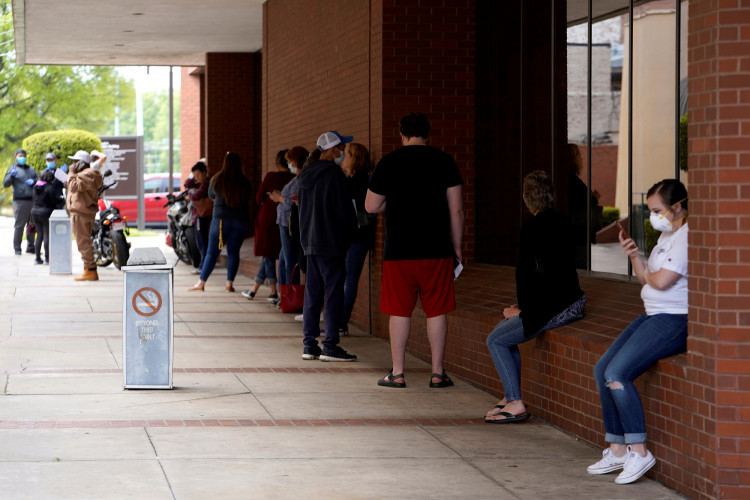The steadily worsening global recession triggered by the COVID-19 pandemic will affect the livelihoods of young people the hardest while also elevating income inequality to new heights.
These grim projections, made by the Organization for Economic Cooperation and Development (OECD) in its latest "Economic Outlook" report published Wednesday, also affirms the pandemic remains on track to cause the worst economic recession outside of wartime in 100 years.
With 37 member countries and founded in 1961, OECD seeks to stimulate economic progress and world trade. It's a forum of countries committed to democracy and the market economy.
In its report, OECD warned strongly about the impact of the pandemic on young people. It noted employees between 15 and 24 years-old represent the biggest share of those in sectors such as tourism and entertainment hardest-hit by the pandemic.
OECD said unemployment in the median OECD economy this year is projected to be at the highest level in 25 years, and will ease only slowly in 2021.
OECD said the scarring effects from the massive job losses will be felt hard, particularly by younger workers and lower-skilled workers. There's also the attendant risk of many people becoming trapped in joblessness for much too long periods of time. Economic impacts are dire everywhere, warned the OECD in its report.
It emphasizes the economic recovery will be slow. The pandemic-induced economic crisis will have long-lasting effects and will disproportionately affecting the most vulnerable people, according to Ms. Laurence Boone, OECD chief economist. Boone also noted while the uncertainty the world faces is very high, economic activity will increase in the coming months.
She said OECD expects world economies to see an upturn, which will look like a V-shaped recovery, as lockdowns ease and national economies re-open. A "V-shaped" recovery is basically a strong economic rebound from a sharp decline in economic activity.
Because tourism, entertainment and leisure can't work as before, this V-shaped recovery will start very quickly and then the climb up to where we were before is going to be much more difficult, she pointed out.
Emerging economies will be the worst hit by recessions. OECD said such as Brazil and Argentina rely heavily for growth on demand from advanced countries such as the US and the European Union, which are also struggling due to the recession.
OECD predicts a more than 7% contraction for the U.S. economy this year. It expects France, the United Kingdom, Spain and Italy will be hit by the sharpest economic contractions this year. These countries are among those worst-hit by the pandemic.
OECD said the GDP weakening in China might range from 2.6% to 3.7% depending on whether there are one or two waves of infections.
As for economic recovery, OECD Secretary-General Angel Gurria said how governments act today will shape the post-COVID world for years to come. Gurria said this is true not only domestically, where the correct policies can foster a resilient, inclusive and sustainable recovery, but also how countries cooperate to fight global challenges together.






